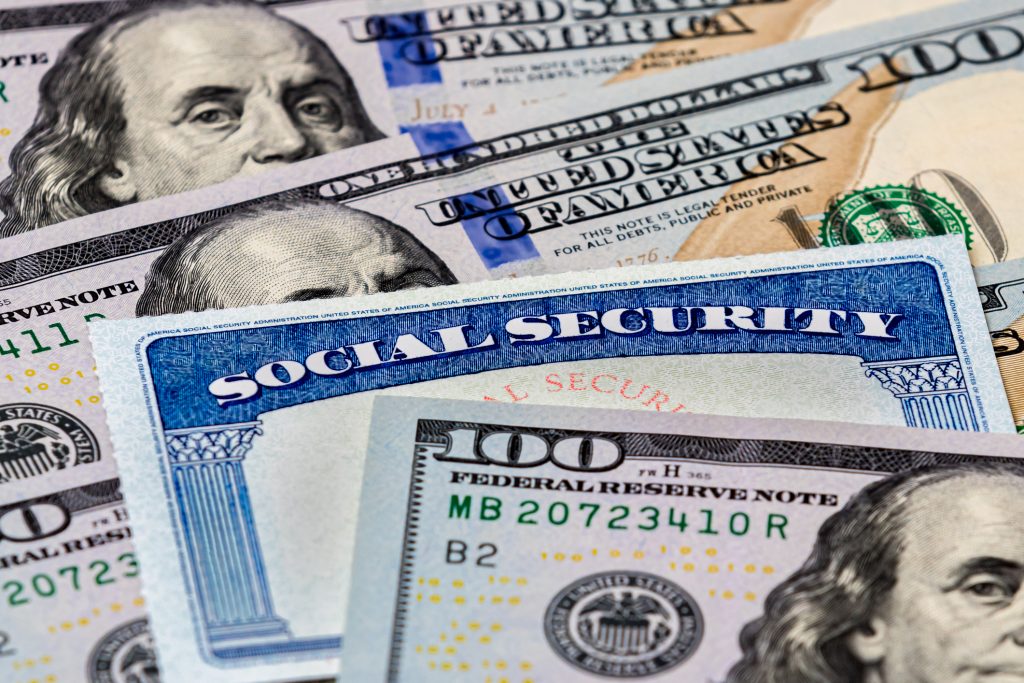
Image source: Getty Images
If you’ve taken out a mortgage in the last few years, you probably got hammered with high interest rates. They’re beginning to come down, and many people are eyeing 2025 as a good time to refinance a mortgage and snag a lower rate. But that’s not the only way you can reduce how much you pay.
There’s another way you may not have considered. And you don’t have to wait until 2025 to get started on it.
Which factors affect your mortgage interest rate?
Mortgage interest rates fluctuate over time, partly due to the economy. When inflation is high, the Federal Reserve and banks raise interest rates to curb spending, which is what we saw happen over the last few years. When inflation is lower, interest rates drop to encourage borrowing.
There’s another huge factor in determining your interest rate: your credit score. Lenders use this as a risk assessment to determine how likely you are to keep up with your payments. Those with the highest credit scores pay the lowest interest rates. And those with low credit scores pay higher interest rates, if they’re approved at all.
How much your credit score affects your rates varies by lender, but it can be significant. Raising your credit score from the good range (670 to 739) to the very good range (740 to 799) could shave $56 off a monthly payment on a $400,000 mortgage, according to FICO. That alone could save you more than $20,000 over the life of your mortgage.
The results could be even more significant if you start with fair credit (580 to 669) or raise your score to the exceptional tier (800 to 850). Note that these tiers are only approximations. Individual lenders may have slightly different credit tiers than shown here.
How can you raise your credit score?
Here are some of the best ways to raise your credit score over the coming months.
Pay your bills on time
Payment history is the largest factor in your credit score calculation, so paying your bills on time is critical. Set reminders for yourself if you need to or use automatic payments if your bank account allows for this. If you can’t afford your payments, contact your lenders and see if you can work something out to help you stay on top of your bills.
Pay down credit card debt
Credit card debt is problematic because its high interest rates make it difficult to pay off. It can also raise your credit utilization ratio, which is the ratio between the amount of credit you spend each month and the amount available to you. For example, a card with a $2,000 balance and a $10,000 limit has a 20% credit utilization ratio.
Ratios under 30% help keep your credit score high. Paying off credit card debt isn’t always easy, but a balance transfer credit card can be a big help. Check out our favorite balance transfer cards to see which one could help you out of debt.
Be careful about applying for new credit or closing old credit cards
Your average credit account age affects your credit score, which is why it pays to leave old credit card accounts open even if you’re not using the card. The only exception is if the card charges an annual fee you’re not recouping in rewards.
This is also why you want to limit how often you apply for new credit. Applying for new credit leads to hard inquiries on your report, which drops your credit score a few points. It’s no big deal if you’re approved, but if not, you just hurt your score for no reason. So only apply for new credit if you feel pretty confident you’ll get approved.
When shopping for a loan, complete all your applications within about 30 days of each other. This way, they’ll only count as one inquiry on your credit report.
Give it time
Your credit score provides a long-term look at how you manage borrowed money, so it’s not supposed to be something you can change overnight. It will take months to raise your credit significantly, but don’t let that discourage you.
Mortgage interest rates are still falling, so now isn’t the ideal time to refinance anyway. Use the next few months to focus on building your credit so you can score the best possible rate when you’re ready to refinance.
Alert: highest cash back card we’ve seen now has 0% intro APR into 2026
This credit card is not just good – it’s so exceptional that our experts use it personally. It features a 0% intro APR for 15 months, a cash back rate of up to 5%, and all somehow for no annual fee!
Click here to read our full review for free and apply in just 2 minutes.
We’re firm believers in the Golden Rule, which is why editorial opinions are ours alone and have not been previously reviewed, approved, or endorsed by included advertisers.
Motley Fool Money does not cover all offers on the market. Editorial content from Motley Fool Money is separate from The Motley Fool editorial content and is created by a different analyst team.The Motley Fool has a disclosure policy.
 benzinga.com
benzinga.com fool.com
fool.com



